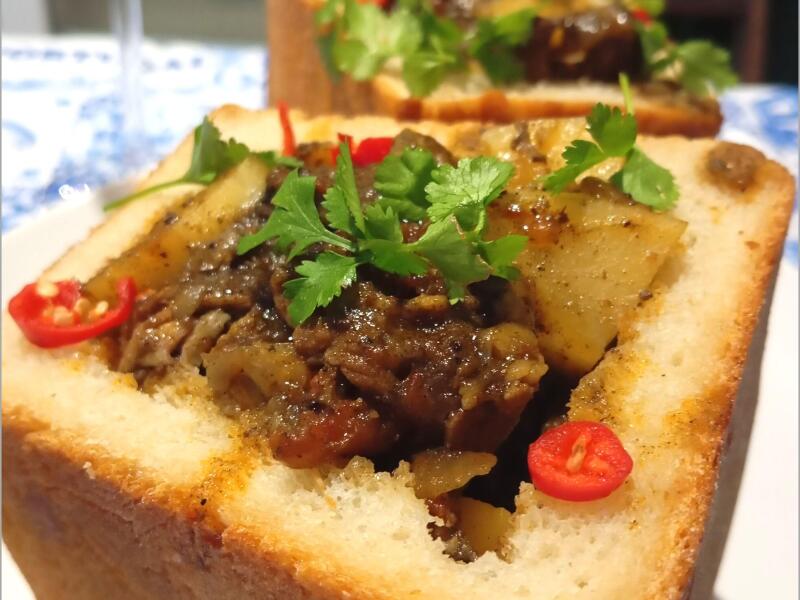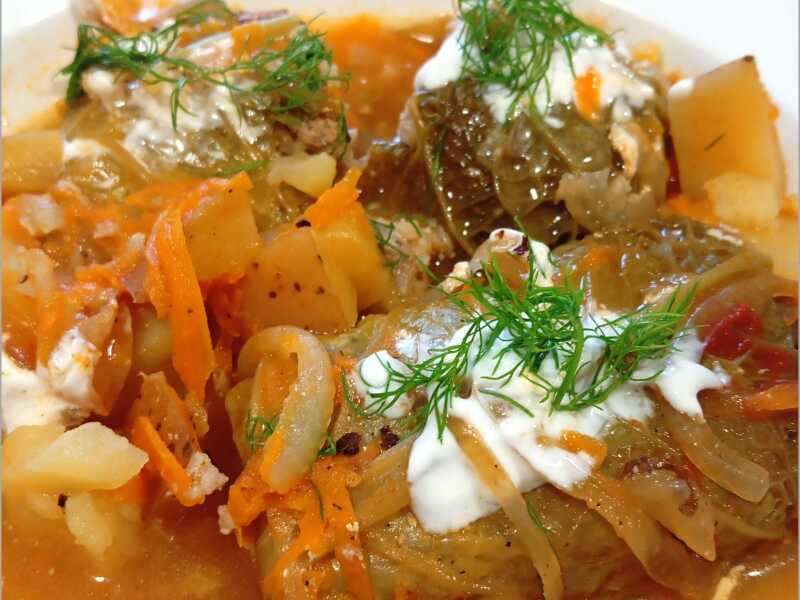Embracing the spirit of tradition, this recipe for impala shanks with rice and lemon pays homage to the classic Greek one-pot wonders of old. The slow-cooked impala shanks, replacing the traditional lamb shanks, offer a unique twist, infusing the dish with rich, gamey flavors. As the grains absorb the essence of the meat and seasoned broth, the result is a comforting stew that resonates with both robustness and tenderness. This modern take on a timeless tradition captures the essence of hearty, soul-warming meals that have stood the test of time.
This recipe is based on the Greek lamb shanks with rice and lemon recipe by Yotam Ottolenghi published in The Guardian.
I substituted the classic lamb shanks with leaner impala (also called rooibok) shanks, introducing a unique twist to the recipe. Additionally, I incorporated aubergine, carrots, leeks, and garlic, making adjustments to accommodate the availability of ingredients in South Africa. Certain elements, like fresh tarragon, were modified to suit the local context.
Ingredients for the meat
- 3 impala shanks (about 1.5kg), can be replaced with springbok or lamb shanks
- 2 tsp salt
- 2 tsp freshly ground black pepper
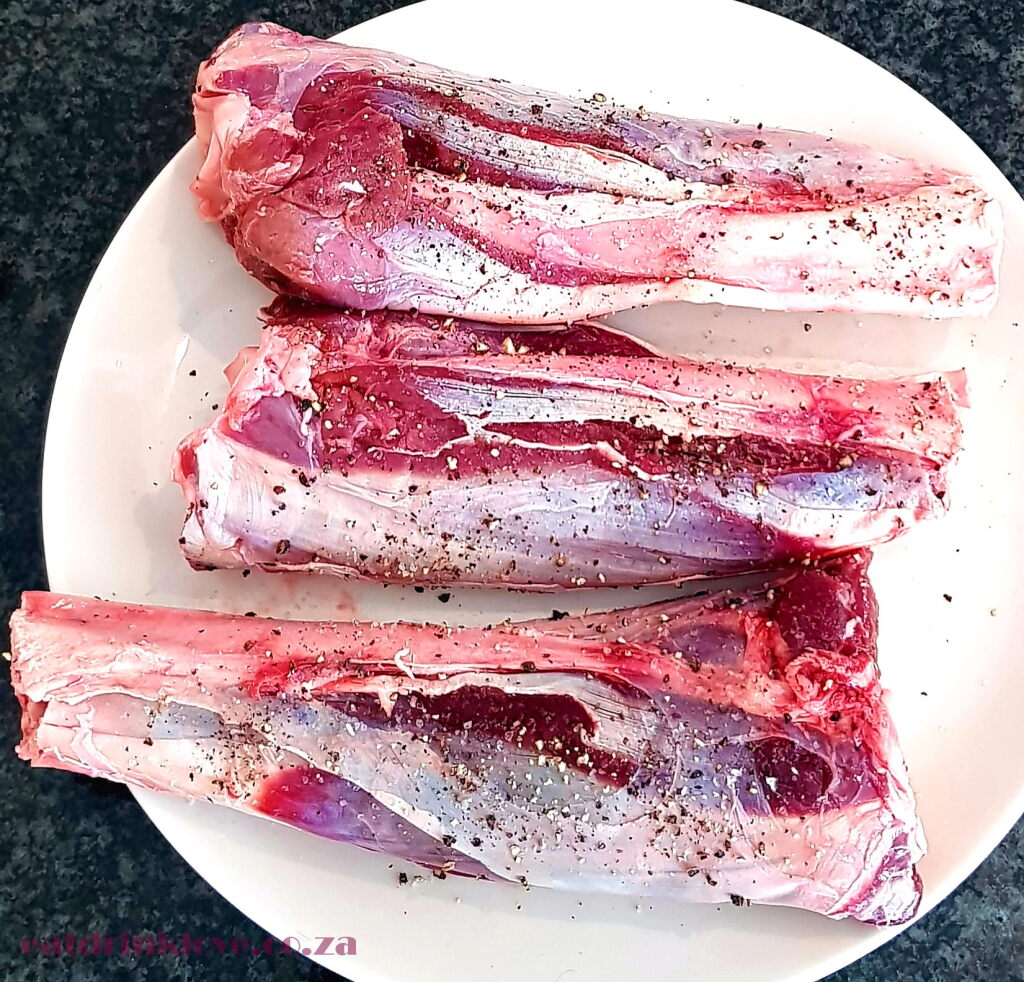
Ingredients for the stock
- 3 Tbsp olive oil
- 200g shallots, halved length-wise
- 2 large carrots, peeled and cut into 2cm slices
- 2 leeks, cut into 1cm slices, used white and light green parts only
- 4 garlic cloves, cleaned and crushed
- 2 large celery sticks, cleaned and cut into 2cm pieces with leaves
- 5 bay leaves
- 3 cinnamon sticks
- Peel of 1 lemon, grated
- 1l chicken stock
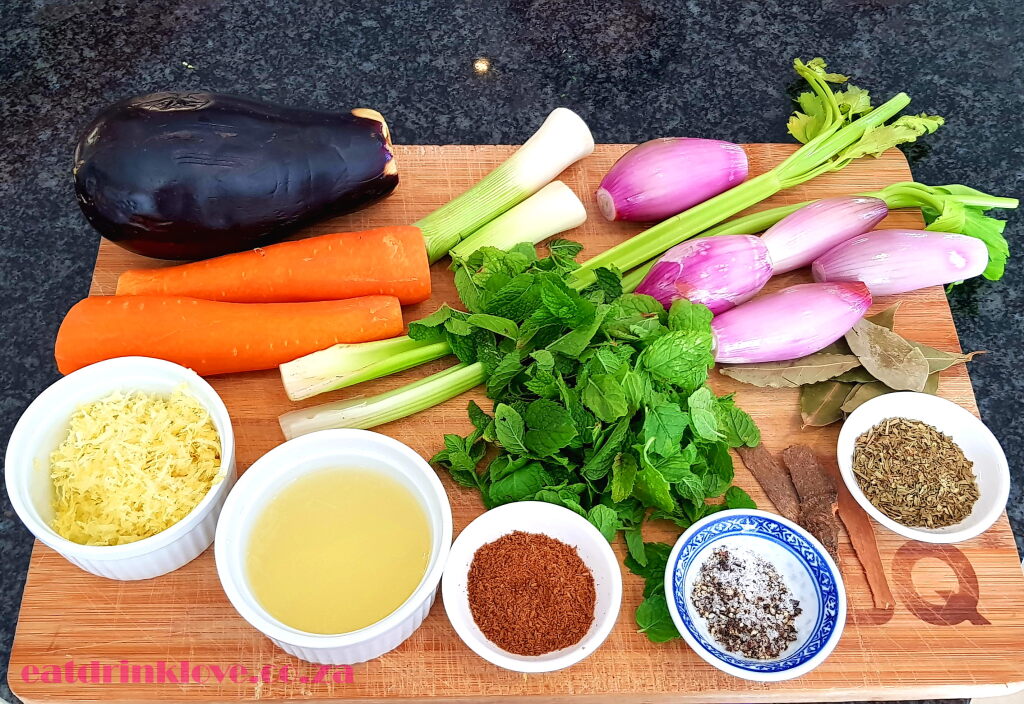
Ingredients for the dish
- 2 Tbsp olive oil
- 1 Tbsp cumin seeds, slightly roasted and then ground to a powder
- 2 Tbsp dried tarragon
- 1 aubergine, cut into 1½ cm cubes
- 1 large carrot, quartered length-wise and then cut in 1cm pieces
- Salt
- 300g basmati rice
- 1 egg
- 60ml fresh lemon juice
- 10g mint leaves, roughly chopped
Instructions
Season the shanks with the salt and black pepper. Set aside.
In a large casserole, heat three tablespoons of oil over medium-high heat. Sauté the shallots for three to four minutes, stirring frequently, until they are well browned. Remove them from the pan and set aside.
Still on medium-high heat, add the shanks and brown them in the hot oil until they are evenly colored all over, turning regularly.
Introduce the carrot, celery, leeks, garlic, bay leaves, cinnamon, lemon peel, and stock to the pot, ensuring the shanks are nearly submerged in the liquid. Cover and let it simmer on low heat for two hours, turning the shanks occasionally, until the meat becomes tender and begins to loosen from the bone.
Pre-heat the oven to 170°C.
Remove the shanks from pot and set aside.
Remove the bay leaves and cinnamon sticks. Discard the bay leaves, but keep the cinnamon sticks.
Liquidize the rest of the contents, strain and set the stock aside.
Return the casserole to medium heat and add two tablespoons of olive oil.
Sauté the ground cumin briefly, then incorporate the dried tarragon, rice, aubergine, carrot, half of the mint and 2 teaspoons of salt (depending on the saltiness of the stock used). Stir well to ensure everything is evenly coated in oil, then pour in 750ml of the strained stock.
Return the shanks to the pot together with the cinnamon and shallots; and bring to a boil. Then cover the casserole and bake for 30 minutes.
In the meantime, whisk the egg and lemon juice in a small bowl. Take 60ml of the remaining stock and heat it in a small saucepan. Bring the stock to a boil, then gradually whisk the hot stock into the egg and lemon mixture.
Take the casserole out of the oven, evenly pour the egg mixture over the meat and rice, and sprinkle half of the herbs. Serve out of the pot.
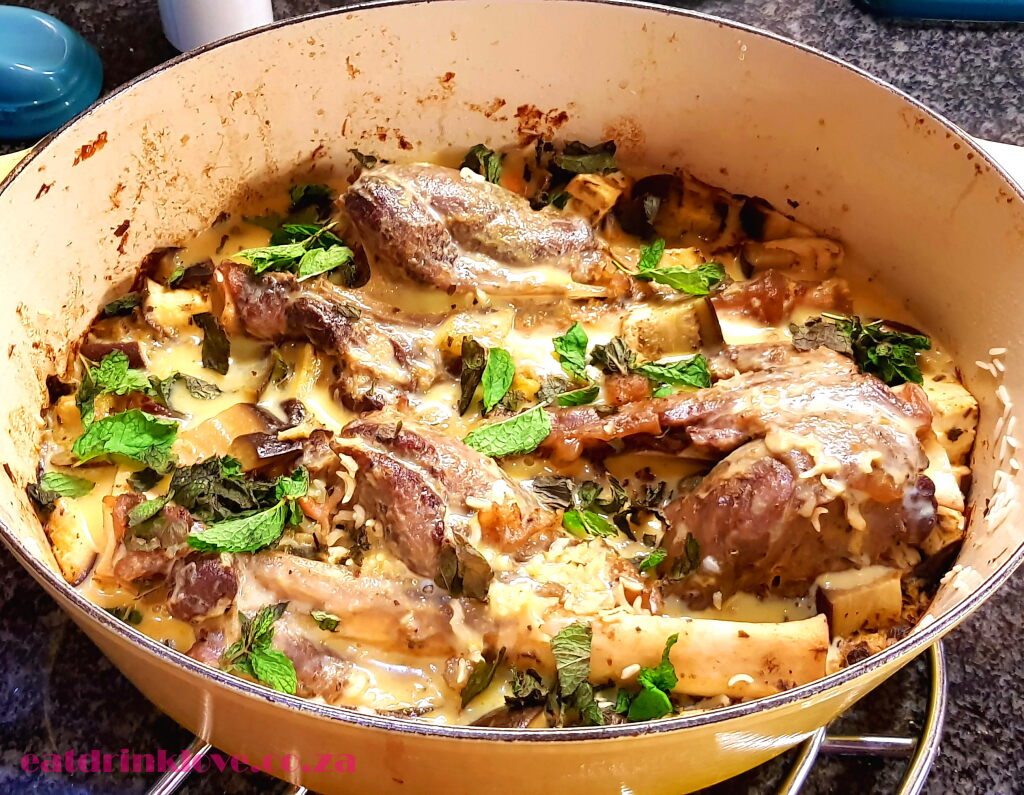
We served this with a very special 2021 Olifantsberg Grenache Noir.
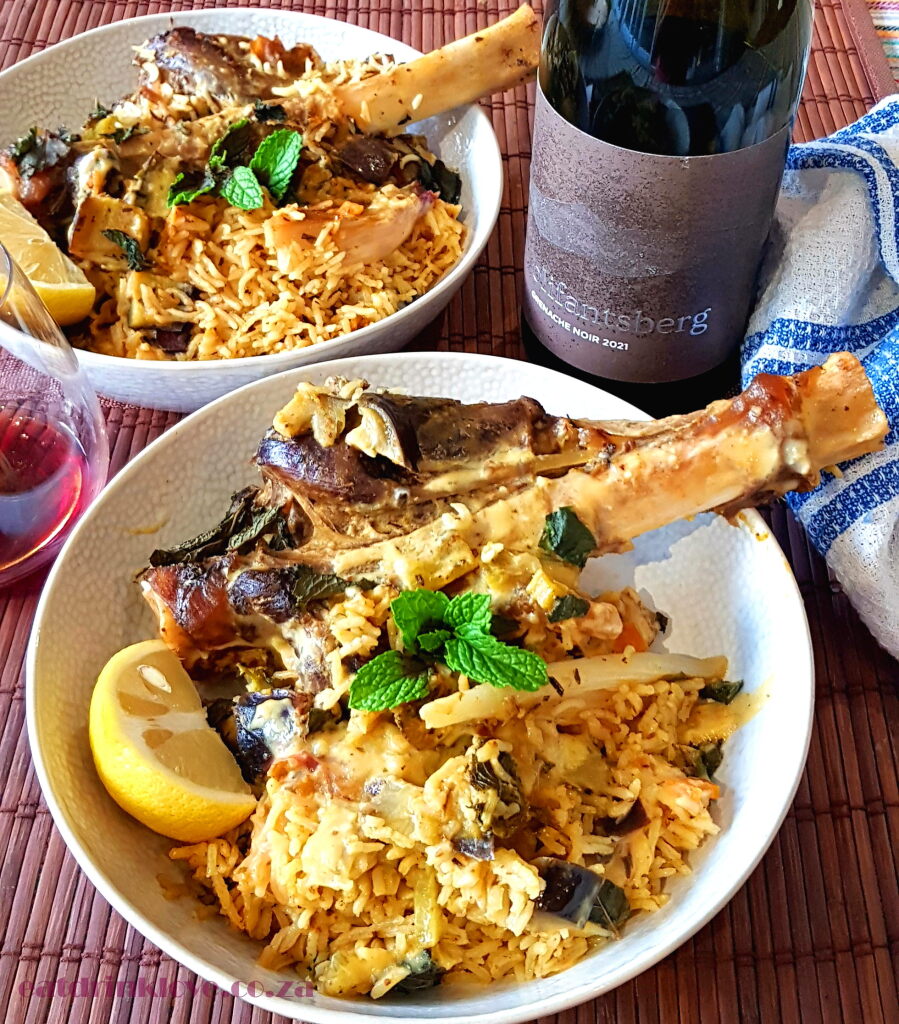
Here are the tasting notes:


